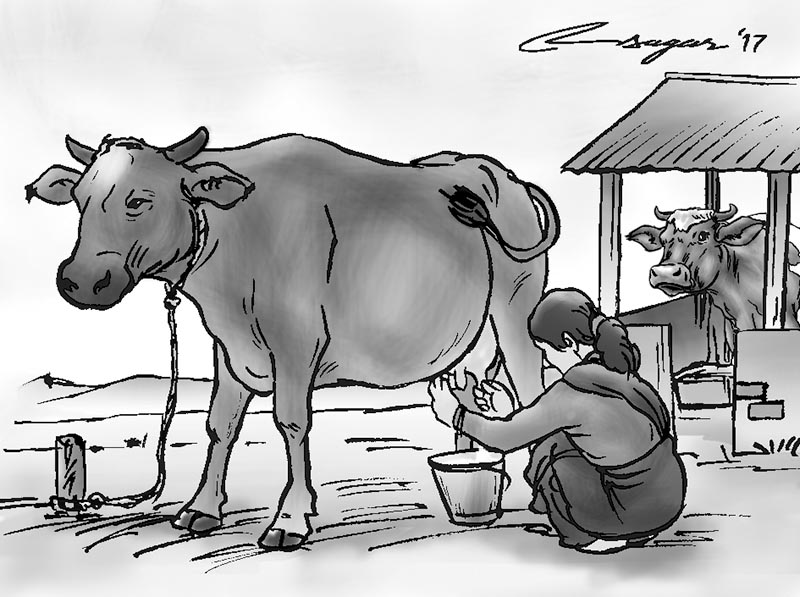Govt mulls quality guidelines for milk
Kathmandu, October 3
The government has started the process to develop guidelines to check the quality of milk in the domestic market.
Following complaints that milk being supplied in the domestic market does not meet international standards, the Ministry of Livestock Development (MoLD) has formed a committee of experts to develop a guideline on the quality of milk.
“The committee was formed about a month ago and will be responsible to submit a report to the government regarding international standards of the quality of milk and prevailing standards of milk in the Nepali market,” informed Shyam Prasad Poudyal, spokesperson for MoLD.
According to Poudyal, MoLD will then prepare a draft of the quality guidelines of milk based on the committee’s report and endorse it as soon as possible.
MoLD started the process to develop the quality guidelines of milk following the direction from the Agriculture and Water Resources Committee of the Legislature-Parliament on August 6 to ensure that milk supplied in the domestic market meets international standards.
Due to lack of an effective monitoring mechanism with the government, consumers have been alleging that the dairies supply milk without balanced nutrition.
Currently, the government has been monitoring the quality of foods, including milk, based on the Food Act, 2028. However, the quality guidelines of foods incorporated in Food Act, 1967, have become obsolete in the current context.
Meanwhile, domestic dairy firms have also welcomed the government’s decision to develop quality guidelines of milk. “As Nepal is a member state of the World Trade Organisation, our products must meet international quality standards. This will help domestic products compete with different foreign brands in the international market,” said Prahlad Dahal, general secretary of Nepal Dairy Association (NDA) — the umbrella body representing private dairy firms in the country.
As per Dahal, the government should also set quality standards of milk products like cheese, ice-cream, yoghurt and paneer, among others. “This will encourage all dairy firms — small to big — to produce healthy and qualitative products in the domestic market,” he added.
Dairies have said that the demand of milk in the country is on the rise since the last few years after Nepalis started becoming more health conscious. However, they also said that the production of milk has been dwindling for the last few years following the effect of natural calamities like the earthquakes, landslides and floods on livestock farming.
NDA statistics show that more than 4.8 million litres of milk is consumed in the country on a daily basis.






